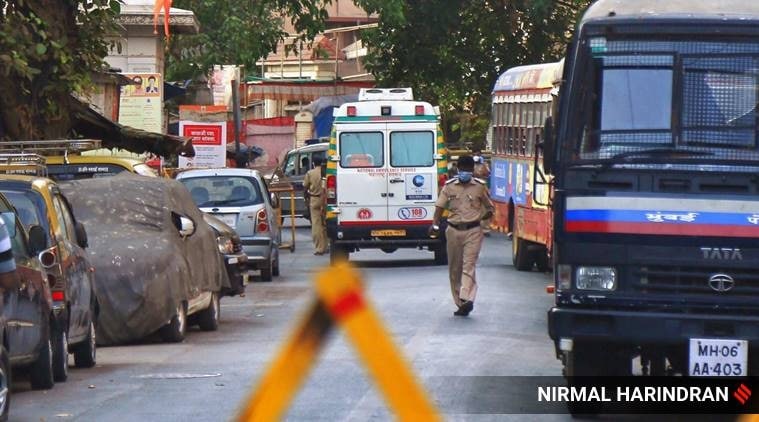 District collectors along with police superintendents have set up committees in each village called gram suraksha dal or gram niyantran samiti. (Representational)
District collectors along with police superintendents have set up committees in each village called gram suraksha dal or gram niyantran samiti. (Representational)
FROM SETTING up village-level committees to arranging home-quarantine facilities in fields, district administrations in non-red zones are gearing up for challenges as those stranded in red zones return home.
At present, deputy police commissioners in cities and district collectors in rural areas are granting permission for intra-state travel to stranded students, pilgrims as well as migrant workers, except those from containment zones.
Districts, including Ratnagiri, Sindhudurg and Parbhani, have recorded Covid-19 cases among those returning from Mumbai and Pune in April and May.
In March, as restrictions began to be imposed in the state before a lockdown, some working in cities returned to their villages. Local residents had then taken to barricading entry points to villages.
District officials said the administration was “better-prepared” now to handle the resistance shown by village residents, including towards stranded migrant workers returning after losing their livelihood in cities. While many have travelled with permission, workers stranded without money or work have also walked on foot or hitched rides in trucks to return home, in some cases without requisite permission from the authorities.
District collectors along with police superintendents have set up committees in each village called gram suraksha dal or gram niyantran samiti. These comprise the sarpanch, the police patil or civilian police representatives and members of the tanta mukti samiti, which is an alternative dispute redressal forum, along with some other local residents.
Officials said since the jurisdiction of a single police station extended to as many as 60 villages, the committees were made in-charge of ensuring that quarantine was followed by those returning. The committees were also directed to make a list of places within the village, including schools and community centres, to set up quarantine facilities.
“Each village-level committee is responsible for those entering, including ensuring that quarantine is followed and also to see that there is no discontent among residents,” said Sindhudurg Police Superintendent Dikshit Gedam. He added that the district had further been divided in 30 zones, loosely based on divisions made during the elections for maintenance of law and order.
Gedam also said a police vehicle in each zone patrolled each village multiple times a day and interacted with local residents over issues they were facing.
Sindhudurg has recorded 10 positive cases so far, including one linked to a family that returned from Mumbai in April. In neighbouring Ratnagiri, Collector Laxminarayan Mishra said nearly 40,000 people had returned to the district since March. The district has recorded 135 positive cases.
“Initially, people would question why outsiders should be allowed from Mumbai and Pune since there were concerns that they could be infected and it would lead to an outbreak. We began persuading people that those returning have nowhere to go but return home. For the first few days, we even have to arrange food, ration and water for them. Now, we have seen that neighbours are warming up to them after a few days and help them with groceries and food by leaving it at their door till the quarantine period is over,” said Police Patil Shakil Deshmukh from a village in Buldhana, which has 39 positive cases.
In some villages, shutting down of shops and markets after a positive case is detected also adds to the resistance by local residents. Superintendent Harssh Poddar said as the cases began increasing, many showed hostility towards those returning from cities, including putting up barricades at the entry of villages. Beed, which had not recorded a single case till April and had only five cases till last week, now has 26 cases.
“We spoke to residents who thought that putting up barricades was the way to stop the disease. We persuaded them that it was illegal to do so and those returning were being medically checked and put in institutional or home quarantine as required,” Poddar said. He said no FIRs were registered in such cases as it would prove counter-productive for the law and order of a village but committees were directed to keep an eye out for such acts by local residents and violations by those directed to remain in quarantine, including alerting district authorities if someone snuck into a village without a pass.
A family of construction workers, who travelled from Bhiwandi to their village in Ratnagiri by walking or hitching rides earlier this month, said they reported to local authorities themselves. “After we were checked and showed no symptoms, we were kept in a school for 14 days, and food was also provided to us. We are now back in our homes,” a family member said.
In Kalamb taluka of Beed, committee member Anant Waghmare said over 400 people had returned from Mumbai and Pune since March 17 to date. “People have been reading about the rise in number of cases in Mumbai and assume that everyone travelling from there is infected. Since arrangements are made for them out in the fields away from residential areas, local residents are less apprehensive,” Waghmare said.